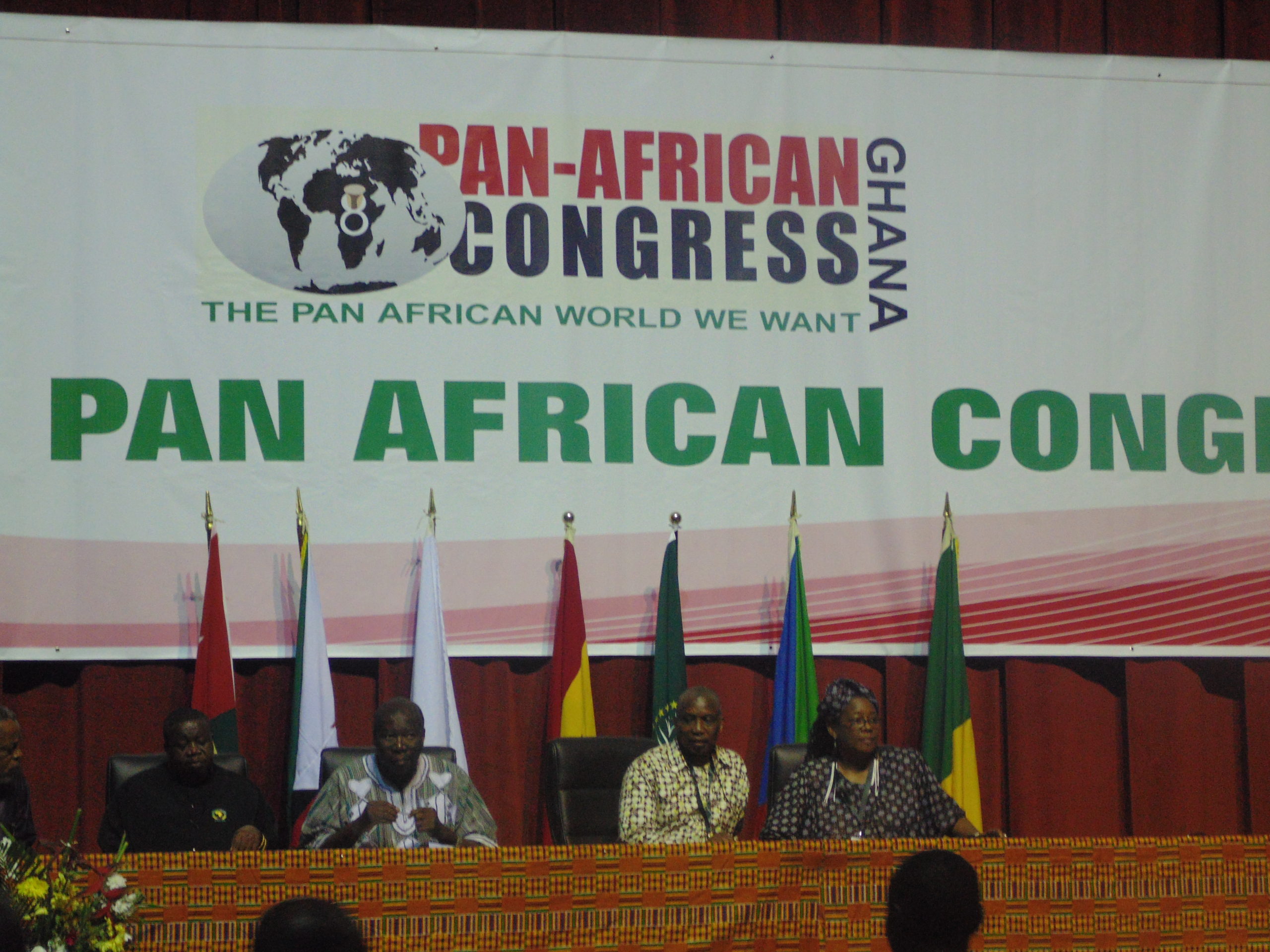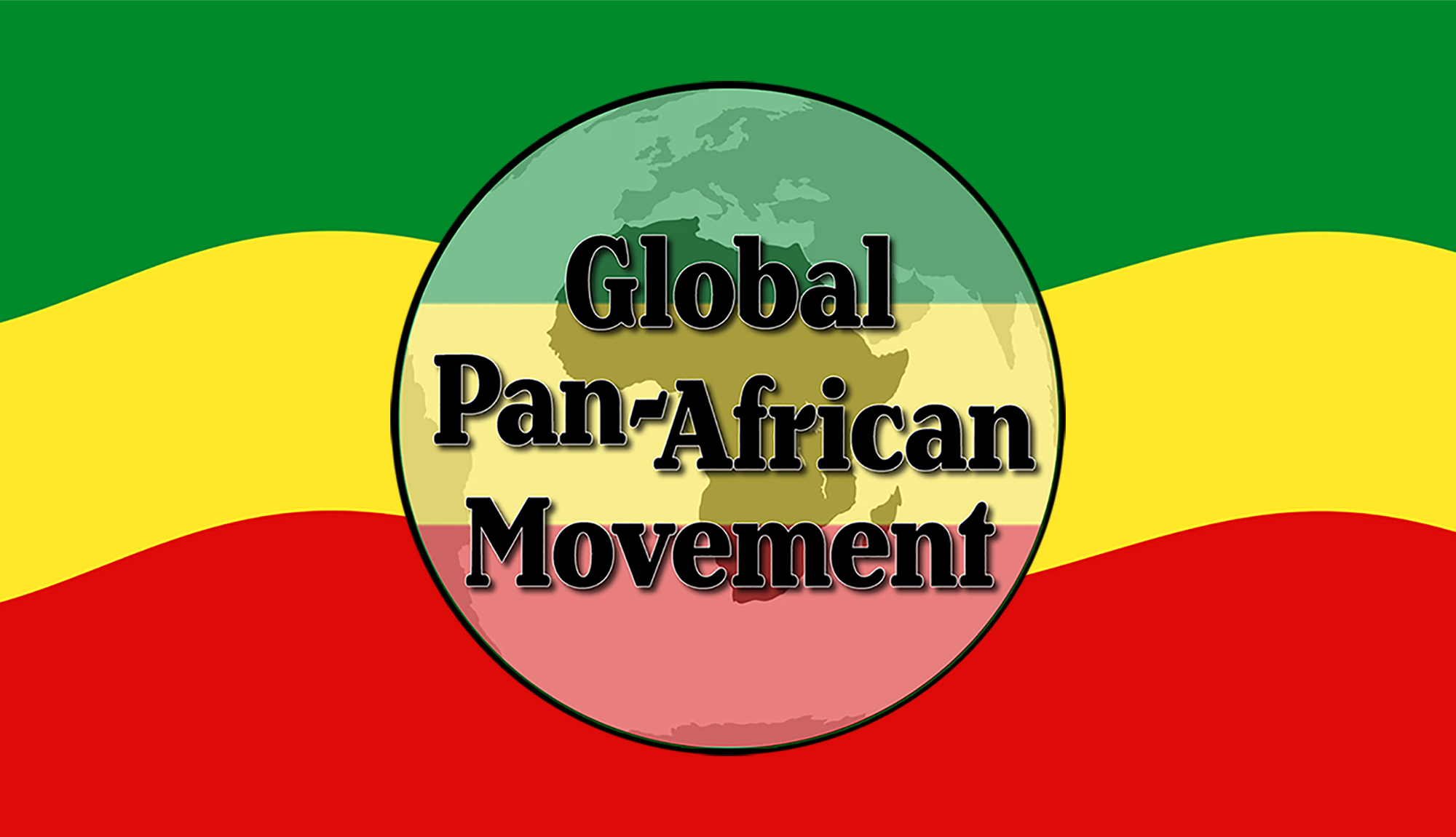Introduction
There are historical changes taking place in global politics that are shaping international relations in terms of economic cooperation, political alignments, and changing aspirations. The conjunctural crisis of imperialism and white supremacy place Global Africa at the center of the future configuration of international politics. This is even more striking in relation to the future of the dollar and its centrality to the global financial system. Africa’s wealth and geostrategic importance is being jealously courted by imperial powers and rising forces. In this process, the question of Africa’s relation with countries like Russia and China is narrated in ways that dissuade multipolarity and strategic African interests. The Global Pan African Movement is against blindly and obediently following the diktats of any imperial or rising powers; we stand firm against new hegemonies as we reiterate the need to make historical and dialectical analyses of political relations and realities. Bearing in mind, the Global Pan-African Movement of North America (GPAM), held an internal education session on, June 7, 2023, on the topic of “Africa Relations with China”.
This internal education session on the African Relations with China, which is accessible here on our website, was centered around the issue of the current conjuncture and the implications of the current warfare and weaponization of everything by the United States ruling elements. The internal education presentation was broken into five sections: (a) how to understand the current conjuncture, (b) the Chinese revolution and the Bandung Process, (c) the transformations within the Chinese Revolution, (d) Africa relations with China and the changes since the reform period, and (e) plans for war against China based on the so called Thucydides Trap. Following an Internal Education session taught by Professor Horace Campbell, the GPAM reached the following resolutions and reflections on Global Africa-China relations:
RESOLUTIONS
Summary
The session concluded with the agreement that Africans must be independent and that the work of progressive Pan Africanists must be to strengthen the working peoples of Africa. The session stressed the dynamic class struggles underway in China between the rising bourgeois in the Communist party and the Chinese workers, small farmers, progressive cultural workers, traditional healers, and artists. It was stressed that the exploitative relations between the Chinese capitalists and African working peoples reflects the relations inside of China. The Global Pan African forces must be aware of these contradictions so that they are not drawn into the multi-dimensional war that is underway against China. One central component of this war is the propaganda war that China is the biggest imperialist in Africa and it is choking Africa with debt. The conclusion called for greater cooperation between the Chinese peoples and African peoples on areas relating to the rights of working peoples, environmental protection and repair, reparative justice, organizing against biological and chemical warfare, ending the domination of the Bretton Woods Institutions and working for World Peace. The internal education session also supported the Chinese 12 point peace plan for Ukraine.
History
- People’s Republic of China (hereafter China) is a ‘Third World’ country with internal diversities; the history of the people of China should be studied to understand the smearing campaign against its recent rise. It is the duty of the progressives internationally to understand the Chinese revolution and the major transformations that enabled this society to lift more than 600 million citizens out of poverty in less than three decades.

- The political leadership of China, since 1949, was integral to the Bandung Project and supported the anti-colonial and anti racist forces in Africa. Except for a brief period when the leadership of China was confused by the theory of social imperialism, the leadership of the Communist Party of China supported those forces fighting for self-determination internationally. GPAM North America salutes this tradition and calls on the leadership of China to be honest of its past relations with the liberation movements in Africa.
- The session hailed the sacrifices of the Chinese peoples in this period in supporting African liberation, with the example of the freedom railway (TAZRA) remaining as a symbol of the relationship between China and the liberation struggles in Africa.

Contemporary Chinese politics
- The reorganization of the Chinese economy since the ‘reform period‘ of Deng Xiao Ping had opened the door for the capitalist classes in China to accumulate capital in alliance with international capital. These Chinese Capitalists offered China as a low wage economy for international capitalists. This capitalist class denies the workers of China basic rights such as the right to free movement, the right to environmental protection and the right to a living wage. This class struggle in China is very intense and from time to time breaks out as the rebellions in Wukan in 2011.
- There are 300 million Chinese workers who live in the City without the right to the City and from time to time there are prolonged struggles between these workers and the police.
- Chinese capitalists align with African bureaucrats and officials to engage in mining practices that are dangerous and detrimental to African societies. This engagement between Chinese capital and local bureaucrats is especially pronounced in the mining sectors where over ten million artisanal miners are involved in digging important minerals. The Global Pan African Movement is calling on organizers in Africa to work hard for the safety and protection of African workers. In those societies where African workers are well organized, Chinese workers have learnt important lessons of workers organizing independent of the state. This was best reflected in the lessons learnt by Chinese workers in Trinidad and Tobago from the Oilfield workers Trade Union (OWTU).

- The new bourgeoisie in China has slavishly internalized the ideas of the western bourgeoisie, including the prejudices of white supremacy. These ideas of white supremacy, even though launched against non white peoples of Asia (with racist campaigns of the ‘yellow peril’ being the most prominent), continue to be reproduced as the Chinese bourgeoisie send their children to western institutions of higher learning where they internalize anti-black racism.
- Progressive Pan African intellectuals have always been at the forefront of the fight for peace, self determination, and social transformation. It is important for the Chinese to remember that it was the people of Africa who championed their cause in the United Nations when the USA carried out its policy of recognizing Taiwan and not recognizing the Peoples Republic of China. The Global Pan African Movement calls for the government of China to support the decolonization project of Global Africa. This will require support to ending the outmoded practice of colonialism that is still being practiced in Africa, the Caribbean, Asia and the Pacific (e.g. Martinique, Guadeloupe, Cayenne, Puerto Rico, Western Sahara, Guam, Mayotte, Diego Garcia, Virgin Islands etc).
Multipolarity
- The Global Pan African Movement (GPAM) supports the push for the end of the domination of the Bretton Woods Institutions. In the need to join forces in furthering the de-dollarization of the global financial sector, institutions like BRICS are key to this development. To be further established as an alternate institution, GPAM is calling for the BRICS development Bank to drop its neoliberal lending policies that mimic the conditionalities of the Bretton Woods Institutions.
- Aligning Africa with BRICS and particularly China at this juncture is not only constructive to the de-dollarization and the forging of a more just, multipolar world order, but it is also a strategic choice for Global Africans.
- African workers need to side with Chinese workers (not to be confused with the Chinese transnational capitalist class)

- The GPAM, North America, supports the Pan-African Payment and Settlement System – PAPSS. GPAM welcomes the push for members of CARICOM to enter into this PAPSS, to further strengthen financial institutions.
- Africans must be abreast of the anti-China propaganda propagated by the West to delink Africa from China while maintaining the links of the West with Africa. Here, GPAM calls for qualitative measures on trade and financial relations between Africa and China, in contrast with the West.
- China is not an imperialist country; it retains no colonial, cultural, religious, linguistic, nor economic hegemony over the world. Africans must cut through the misinformation and obscurity emerging from imperialists and white supremacists against their war with China. The same white supremacists who have no respect for Black lives want Black lives to fight to maintain white supremacy.


